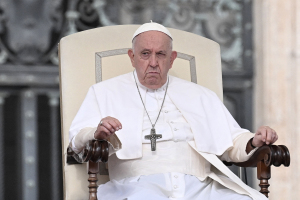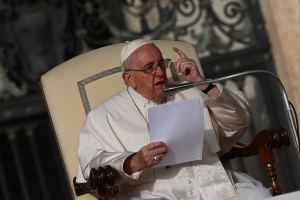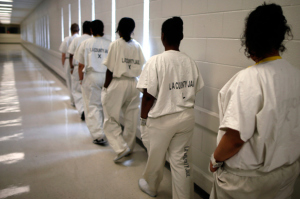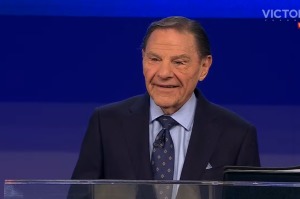Gay Marriage Criminal in Indiana, Claim Same-Sex Marriage Advocates - Law Being Misinterpreted?
A misinterpretation of Indiana's state laws regarding perjury on marriage certificates has led some, especially gay marriage advocates, to inaccurately accuse the Midwestern state of recently passing legislation that criminalizes same-sex marriage.
The blogosphere erupted recently when a local newspaper reported on two little-known 1997 state laws, known as Section 1 and Section 7 of Indiana Code 31-11-11.
Section 1 declares it a Class D Felony to knowingly submit fraudulent information on a marriage license application, and because the application only provides an option for a male or female applicant, a same-sex couple applying could technically be seen as knowingly providing false information.
Another part to section 1 also declares it a Class D Felony if the marriage license applicant "knowingly furnishes false information concerning the applicant's physical condition," including gender.
Section 7 of the Indiana Code 31-11-11 declares it a Class B misdemeanor for anyone to attempt to solemnize a marriage in which two people are prohibited from marrying due to state law.
Although The Times of Northwest Indiana, which originally reported on the laws, did indicate that both of these state law provisions were old, the blogosphere erupted in accusations at both the state and its Republican Governor Mike Pence, arguing that it was criminalizing same-sex marriage.
One headline from the National Journal blog read "Prison Awaits Same-Sex Couples Who Try To Get Married In Indiana," while the pro-LGBT community website ThinkProgress headline read "Same-Sex Marriage Isn't Just Illegal in Indiana, It's Criminal."
So far it appears as though no same-sex couples have been prosecuted for filing for a marriage certificate in the state despite the provisions.
Pro-same-sex marriage groups have encouraged couples to apply for marriage certificates in states banning same-sex marriage as a form of protest.
Other news publications, such as The Indianapolis Star, sought to clarify that these provisions do not specifically address same-sex marriage and are meant to prevent perjury regarding marriage licenses or attempts to solemnize unlawful marriages.
The Indiana Law Blog also sought to clarify the confusion, with Marcia Oddi, an attorney and author of the blog, writing a post on July 9 that argued many of the claims being made by news publications were inaccurate, especially when using terms such as "revamped" when describing the existence of the 1997 law.
"What is correct is that provision is not new, the prohibition has been in effect since 1997," Oddi wrote regarding Section 1.
Oddi goes on to argue that the provision was actually passed in 1986 under a different title.
The confusion with describing the provisions as "new" when they are actually over a decade old may lie in the state's recent passage of House Bill 1006, which changes the state's criminal code, predominately the area of sentencing for felonies.
Come July 2014, areas which were originally Class D felonies would be titled Level 6 felonies, meaning that the sentencing for Section 1 would change from a punishment of up to three years and a $10,000 fine to a maximum punishment of 18 months in prison with a $10,000 fine.
The punishment for a class B misdemeanor would stay the same at maximum 180-day jail sentence and $1,000 fine.
Tensions in Indiana regarding same-sex marriage have increased in recent months, with several same-sex marriage advocates taking to social media, including Gov. Pence's Facebook page, to attack the Republican politician for his opposition to same-sex marriage.
When the Supreme Court struck down a key provision of the federal Defense of Marriage Act earlier this summer, Gov. Pence reaffirmed his belief in traditional marriage in a statement.
"I believe marriage is the union between a man and a woman and is a unique institution worth defending in our state and nation," Pence said at the time, according to The Huffington Post.
"For thousands of years, marriage has served as the glue that holds families and societies together and so it should ever be," Pence added.
"While I am disappointed that the Supreme Court has overturned the federal Defense of Marriage Act, I am grateful that today's decisions respect the sovereignty of states on this important issue. These decisions preserve the duty and obligation of the states to define and administer marriage as they see fit," Pence said.
Since the Supreme Court's DOMA ruling, pro-same-sex marriage advocates have been filing individual lawsuits in several states in order to overturn state bans, whether they be constitutional amendments or statutes, on same-sex marriage.
The American Civil Liberties Union said in a recent press release that it is currently focusing its legal efforts regarding same-sex marriage on Indiana, North Carolina, Pennsylvania, and Virginia.
While Indiana bans same-sex marriage, Gov. Pence is reportedly seeking to have legislature pass a constitutional amendment banning same-sex marriage so it may be put up for a ballot vote in the upcoming November 2014 election, according to the ACLU.





























